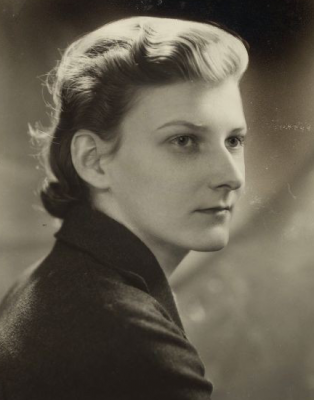|
Elizabeth Huff (1912-1988) was a leading figure in the development of East Asian studies in the United States. A native of Illinois, she received her B.A. in 1932 from the University of Illinois and her M.A. in Oriental Art from Mills College in 1935. She then came to Radcliffe College and became the first female student to pursue graduate studies in the Department of Far Eastern Languages. Her interests lay in literature and art, and in addition to her work in FEL, she also studied East Asian art history under Langdon Warner. |
 |
|
Huff went to Asia for language study in 1939 and lived sequentially in Japan and China. After Pearl Harbor, she was interned by the Japanese and spent the duration of the war at a prison camp in Shandong province. After the war she returned to Harvard to complete her dissertation. In 1947, she became the first female Ph.D. recipient in the Department of Far Eastern Languages. Her dissertation, entitled “Shih Hsüeh,” was a study of Chinese poetics. In the spring of 1947, Huff moved to California to become the founding librarian of U.C. Berkeley’s East Asian Library. Over the next two decades, until her retirement in 1968, she built that institution into one of the foremost East Asian libraries in the United States. Huff unified Berkeley’s scattered East Asian collections and dramatically expanded the library through her knowledgeable allocation of grants and donations. In particular, she utilized her background in Asian art to create a world-class collection of publications on Chinese and Japanese art. During her years at Berkeley, she also lectured on bibliography in the Department of Oriental Languages. Huff’s largest publication, written in conjunction with Fang Chaoying, was a lengthy descriptive catalog of the Asami Library of Classical Korean Literature (1969), which Huff acquired for the East Asian Library in 1950. The catalog, which offers detailed bibliographical essays on the many rare Chosŏn period books acquired in colonial Korea by the Japanese lawyer and bibliophile Asami Rintarō, remains a key reference work for scholars of the Chosŏn dynasty. |
|
Copyright © 2024 The President and Fellows of Harvard College | Accessibility | Digital Accessibility | Report Copyright Infringement
